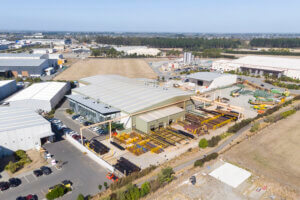War in Ukraine, a de-globalised economy and inflation: what it all means for NZ



Erskine Owen director Alan Henderson sat down with economist Dr David Skilling to discuss how changes in the global economy might affect New Zealand. David advises governments, companies, and financial institutions in the Asia Pacific, the Middle East and Europe on dynamics in global macro, economic policy, globalisation, and geopolitics.
A global decoupling
For the last 30-odd years, the global economy has been in a phase of intense globalisation. Factors such as improved shipping and communications technology and large numbers of working-age people in developing countries made it easier for developed countries to offshore production. This brought prices down, increasing competition and increasing quality.
This – among other things – kept inflation low.
Now, things are changing.The demographics of countries like China are starting to look more similar to the inverted pyramid demographics of New Zealand and other developed countries, with a faster-growing pool of pensioners than working-age people.
This means that it may not be as cheap to produce goods in the future as it was in the past. In other words: sustained inflation for several years.
Ukraine, Russia
That context brings us to the war in Europe. Skilling argued that the war – and the sanctions in particular – are accelerating a process of deglobalisation that was already underway.
Where the world was firmly economically connected, it is now fragmenting into different spheres – Russia, China, “The West” (although that includes countries like South Korea, Japan and Singapore), and countries not in these spheres like India and most of Africa.
Where we were tightly economically tied in the past, in the future, the world may look like a handful of disconnected economies. This has significant implications for New Zealand and other small countries, because we are such big exporters – particularly to China.
If China moves in the same direction as Russia, and decouples from the global economy, that is a lot of dairy and red meat exports that will need to find new buyers. This may not happen overnight, but it is the general direction of travel – China has clearly indicated that they would rather be economically independent in the long term, rather than connected to the global economy.
(And swift, deep sanctions on Russia will only be working to hasten this – while they are a painful, and justified punishment for Russia invading Ukraine, they also serve as a good case study of how exposed countries are when they are deeply connected to the global economy. A lot can be taken away, very quickly. China will be taking notice of this.)
With Russia producing so many commodities the global economy uses, and China producing so many of the finished products we use, it may be difficult to produce things as cheaply as we did in the past if these two countries retreat from the global economy.
The other factor: COVID-19
On top of all this, we are now entering a structurally-different, post-COVID world.
Here’s just one example: for years, businesses relied on production systems that shipped raw materials and parts for physical products from all over the world, arriving not long before they were needed. This meant low inventory volumes.
These systems keep costs down, but they aren’t very resilient in response to shocks like the COVID-19 pandemic. Going forward, businesses may mitigate this risk by keeping more stock on hand than they have in the past. But inventory has carrying costs. These costs will be passed on to the consumer – meaning another driver of inflation.
And this is just one example. Other examples include an acceleration of remote work (who is really going back to the office?), and the acceleration of the digital economy associated with that. Then there’s e-commerce, with its flow-ons to last-mile shipping and the logistics systems supporting that – the list goes on, and on. It’s a different world now. As the shift happens, there is likely to be inflationary pressure for at least a few years.
The big impact: inflation
Combine these pressures with other pressures you probably already know about – things like supply chain problems, pent-up demand and inflation caused by monetary policy – and you can see that inflation is probably going to be with us for some time.
For NZ property owners who have mortgages, this may have a mitigating effect. If inflation is 7%, and nominal interest rates go up to 5%, then the real interest rate is actually -2%. So in that sense, inflation may mitigate the impact of interest rate rises – as long as you have a mortgage.
But there will still be negative impacts on costs of living, just like there have been for the last few months. They may not be as intense as they are at the moment, but they are also unlikely to disappear entirely.
The bigger risk: net migration
Before the pandemic hit, New Zealand’s net migration was at an all-time high: just over 70,000 people in 2019. That is good for investment property owners, as it puts upwards pressure on rents while supply remains constricted.
But even when we fully open the borders, it is probably going to take quite some time to get back up to this level. Consider:
- The absolutely booming labour market in Australia – where wages were already higher pre-pandemic! Again, this is inflation-related.
- China (a huge source of migrants for NZ) remains effectively shut to the outside world.
- New Zealanders wanting to leave have been unable to do so – or unwilling during a pandemic – for two years. This is likely to create a larger exodus than usual, which further lowers our net migration number.
And this may persist for some time as the world readjusts to a post-COVID, less-globalised reality.
Wrapping up: lots of uncertainty – but overall good news
This might look like doom and gloom. But it’s really more about change. Skilling is optimistic about the overall global GDP growth. The drivers are there to keep the global economy growing. The challenge is in the readjustment. Some industries are going to become much more successful, while others are going to struggle to maintain relevance.
But as long as the overall economy continues to grow, there are still opportunities. We just need to keep our eyes peeled to find them.
David finishes with “My concern about New Zealand is not that we are facing existential risk. It’s more just foregone potential, where we could be doing a lot better than we actually are.”
